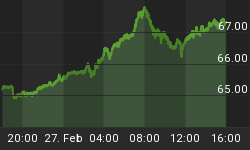Nigeria's controversial oil industry bill is expected to eventually pass but the government may find it tough to later shift gears as international oil firms targeted under the legislation scale back their investments.
The Nigerian parliament is debating the Petroleum Industry Bill, an attempt at oil-sector reform in which Abuja can negotiate "downward" a foreign firm's share of profits and impose higher royalties and taxes, said Peter Pham, director of the Africa Project at the New York-based National Committee on American Foreign Policy and an associate professor at James Madison University in Harrisonburg, Virginia.
Despite potentially spending billions of dollars, a firm not seen as "fully exploiting" an oil block may risk having it turned over to a Nigerian upstart instead, Pham added.
While it is theoretically possible to alter the oil law in the future, "as a matter of practical politics" it will be tough, he argued. Even if the bill passes in the coming days, it will be at least 18 months before a new parliament revisits the law, "assuming it wants to," he noted.
By that time, international oil companies will have been "scared off," as blocks are revoked and given to Nigerians "loath" to surrender them, he said.
"In short, undoing damage would be difficult because there will be new entrenched interests with a stake in the new status quo."
Others are not so sure.
Backers of the hotly-debated bill will eventually see production and investment fall, perhaps by $3 billion annually, which might prompt them to "change the laws a bit and bring more people in," argued Sebastian Spio-Garbrah, a New York-based analyst covering Africa at the Eurasia Group, a research and consulting firm.
At the moment, the country is "just not in the mood for being reasonable" and wants to "own" the industry, which has been dominated by names like Chevron and Total, Spio-Garbrah told OilPrice.com. While local firms may lack the "technology of the Exxons," he noted, the "Pollyannish" government believes Nigerian firms can perhaps later hire oil-services companies to help out.
The country's oil industry needs to be deregulated because the Nigerian National Petroleum Corp. is "clearly inefficient," Pham said. But gaining political support for restructuring the state monopoly has meant adding other financial measures to the bill targeting international petroleum giants that will jeopardize future foreign investment, he cautioned.
The country was already hurting, as militant activity in the Niger Delta forced production off shore. The government instituted an amnesty program last year for fighters willing to change their ways that brought some normality to the region.
President Umaru Yar'Adua's illness, however, kept him out of the country for months, a situation prompting Vice President Good Luck Jonathan to become the interim leader. In part due to the crisis created by this "political vacuum," the promised social development and funding under the amnesty have not come about, Pham noted.
For now there is an "uneasy quiet in the Delta," he added, and oil companies are reluctant to return in case violence sparks again.
Nigeria's share of global production, moreover, has been "off a third" in the last half-decade alone, he said, adding that last year about $8 billion was invested in Angola's deep-water resources -- "more than twice as much" as in nearby Nigeria.
Now the oil leader in sub-Saharan Africa, Angola will have achieved double its neighbor's production by 2020, he said, quoting industry estimates.
Western oil companies are still interested in the country despite the uproar over the petroleum bill. The Nigerian division of U.S. energy company Chevron announced plans to invest $3 billion in several gas projects in the country, according to media reports last month. Reports also signaled that Total wants to invest $20 billion in oil and gas exploration.
Pham, however, would "really question whether Total would put $20 billion into Nigeria."
To a certain extent, operating in Nigeria under the new law will mean the oil majors will have to "grin and bear it," he added. It's likely they will adopt a business model not as traditionally "forward-thinking" as in the past and "try to extract what they can while they can," he said. It's doubtful, he added, that firms will pour money into exploration if their position in five or 10 years is uncertain.
Western oil money may seek out a market like Angola, which can offer a "business model that's fairly reliable," Pham told OilPrice.com. China may then figure more prominently in Nigeria, while local firms, many politically connected, will step up, he said.
Vice President Jonathan has been the "real mover" on the bill in recent months, and as a result, the bill's been "bogged down in that ambiguity," with no indication of what Yar'Adua may think, he said.
"Yar'Adua could die tomorrow, Jonathan could be assassinated the next day, and these reforms would come in some fashion," Spio-Garbrah of the Eurasia Group stressed. The bill will pass because structural forces, irrespective of whether Jonathan becomes president, are pushing for this change, he argued.
In the end, claiming a "bigger slice for the nation" will be politically popular among the political class, which stands to gain in the short term from revamping the oil sector, Pham said. The "average Nigerian on the street," by comparison, will feel greater pain, as fewer oil revenues trickle down in future years.
By Fawzia Sheikh for OilPrice.com who focus on, Fossil Fuels, Metals, Crude Oil Prices, Alternative Energy and Geopolitics To find out more visit their website at: http://www.oilprice.com















